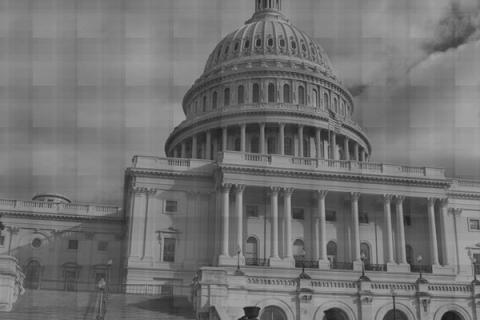
Americans clearly want a different kind of politics. Repeated sampling by respected pollsters like Pew and Gallup is unequivocal: nearly 90% of Americans are dissatisfied with Congress, half or more want a viable third party, and near 40% say they are political independents. On blogs and social networks, citizen-writers clamor for independent and minor-party candidates to be included in debates, and to get universal ballot access.
Two points are vital to the discussion on a potential new American politics:
- Electing independents to Congress will be more achievable and more effective than electing a President, and
- Electing independents may be a better strategy than electing 3rd party candidates.
Congress, Not President
The first point can be quickly addressed: Indy and 3rd party presidential runs haven't worked—and aren't likely to. Finding a candidate with national appeal, and then building a national campaign are too daunting. And in the antagonistic congressional environment of recent years, even a president with party congressional support has been severely limited in his ability to govern. An independent or 3rd party presidential candidate is almost certainly unelectable and, if elected, would have difficulty governing with no party support in Congress.
Congressional runs, on the other hand, have potential for success if mounted in winnable districts, with the right candidates, strategies and execution. (See the author's earlier article: “A Political Marketplace is Developing for Independent Candidates”). And even a few elected Congressional independents would have the potential to exercise some political power, especially in a closely divided House or Senate.
Indies, Not 3rd Parties
The second point in this discussion is that electing independents is preferable to electing minor-party candidates.
Fewer than 1% of Americans regularly identify themselves as members of a minor party. Greens and Libertarians often net higher than 1% vote totals in elections, but few people declare themselves as members of a minor party.
Compare that with independents. Though people use the label in different ways, there is an existing “Independent” brand and 35-40% of Americans identify with it. If the goal is political change, it may be better to start with brand-recognition at 40% rather than half a percent.
Granted, there's a problem as well as a benefit with the independent brand: independent candidates have a reputation for poor election performance, especially at the national level. However, that reputation applies equally to minor parties. Every presidential election offers dozens of lesser-known candidates, some serious, some not. Some run as independents, some as party candidates, but none of them do well. In the sixteen presidential elections since WWII, only 104 of nearly 8600 electoral votes have been cast for someone other than the two parties' candidates.
Beyond branding, two benefits of an independent candidacy over a minor-party candidacy are: fewer ideological limits, and access to broader constituencies. Parties have positions in people's minds. A voter hearing “Green Party” will likely think immediately of environmental issues, hearing “Libertarian,” she may think of small government, or marijuana legalization.
Suppose a candidate, or a citizen's group has determined that environment, small government, full employment, and increased educational spending are all important issues in a particular congressional district. No party exists to address all those issues. An independent candidate, though, isn't bound by party ideology, so she can openly support all of those ideas, and use the positions to set her apart from any party candidate. She won't be constrained by a party, and won't have to soft-pedal one or more of the positions to protect a party candidate who might be running for a different office in the same media market. She can build part of her constituency from parents and educators, part from environmentalists, and part from conservatives. It's her personal constituency; if it works for her district, it doesn't have to work anywhere else.
In some ways, independents will also be more resilient in campaigns. Individuals are harder to attack than parties. A national PAC might assault the Green or the Libertarian Party with a scurrilous attack, and if it gains traction, it will immediately mar any candidate who runs under that party label. But an independent could escape the attack, even though his positions might closely parallel the party.
A final advantage is that once elected, independents can cooperate on matters of procedure and governance without cooperating on policy. For example, independents from the right and left might work together, and with a few major-party House members, to change an obstructionist House rule. Then all of them could turn right around and use the new rule to take vastly different tax measures to floor debate and votes. All would be served by the new rule because their measures would be heard.
Party Power
It might be tempting to think that party power must be fought with party power—what works for the Democrats and Republicans is also the best way to work against them. But that means building the same kind of national juggernauts, and doing it without access to the levers of governance that the parties control. That approach has been extraordinarily difficult to execute. By sidestepping the party power fight, political independents can access many of the advantages of scale, without its disadvantages. Today, citizens working in communities across the nation can cooperate through websites and social media, learn effective political strategies, and help each other succeed, all without building mammoth national efforts.
Community-Based Politics
Nationally, third party presidential candidates have been emerging and failing almost continuously for more than six decades. A different kind of opportunity presents itself today. Community-by-community, district-by-district, voters can analyze local needs, identify where party candidates fail to meet those needs, find and develop independent candidates who can meet them, and put those candidates in Congress. Even a few successful elections could profoundly impact the nation's political culture.
Are there difficult challenges in that approach? Of course there are. If it were easy, it would have been done by now. But it is doable.
